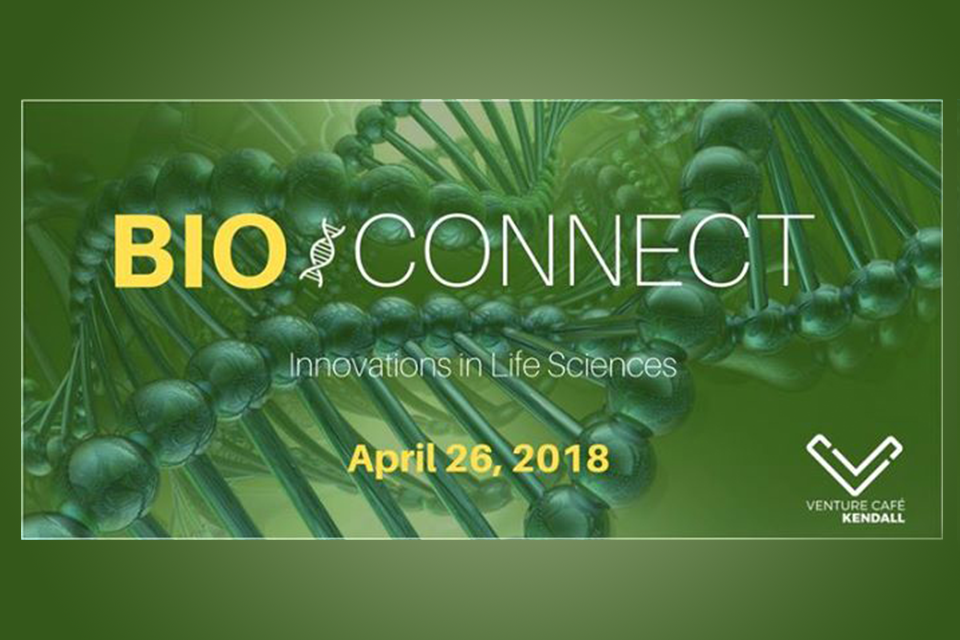Brandeis Scientists Shine at BIOConnect

We all know what science fiction is: a genre of fiction based on speculative concepts of technology and innovation, but have you ever taken a moment to think about how many creations have become reality through scientific research? Take, for example, 3D printers in Star Trek, or the Roomba from the 60’s cartoon show The Jetsons. This is just the tip of the iceberg. Researchers now are creating things that we never would have thought of before, like a scoliosis brace that grows with you, or understanding the molecular pathways that create disease.
At BioConnect on April 26th, hosted by Venture Café in Kendall Square, attendees got to witness the modern-day equivalent of the first iterations of technologies as innovative as the Roomba and 3D printing. Each week, Venture Café hosts an event that connects interested attendees with researchers at the forefront of discovery and entrepreneurship, and the theme for this night was biotech research. In total, 15 startups were present, and these teams witnessed a record attendance for a Venture Café event: over 500 people checked in by 6pm, just half an hour into the night.
Even for someone with no background in science, the potential that these teams offered was clear. Each team had the chance to share their innovations with the attendees who surrounded each table. In addition, even though the theme for the night was biological research, there was great diversity from one table to the next. One team explores molecular pathways that are related to disease, while another is researching alternatives to prescription medications by utilizing natural products like herbs and vitamins. Two stars of the night were Brandeis’ own Ingrid Marko, presenting her start-up ModiBrace, and Dr. Isaac Krauss, who was presenting his research on carbohydrate-based vaccines.
Inspiration for the ModiBrace came from Marko’s own struggles with scoliosis and the frustration of having to get refitted for a brace every few years. Her creation is a patent-pending brace that has the potential to grow with the patient: it can be easily adjusted to lengthen and expand, and has the potential to improve how scoliosis is treated. During this event, Marko had many attendees asking questions about how she came up with the idea, as well as what her plans are for the future. She also gave a presentation in which she further explained what the company is and what it represents.
Professor Krauss’s idea was a little harder to grasp for the non-scientist, but thankfully he has had a lot of practice in explaining it in a way that is easy to understand. His lab is focused on identifying the pathways by which 20% of those infected with HIV are able to build antibodies against the virus. He has been able to target the HIV protein, gp120, and hopes to expand his research to create a vaccine to prevent the disease altogether. If successful, his discovery will have the capacity to save millions of lives. (No, you didn’t read that wrong: right now, there are about 36.7 million people in the world who have HIV; about 5,000 got infected per day in 2016.)
Even in modest terms, the night was a success: over 500 people were able to connect with researchers from the Boston community and not only learn about what they’re doing, but also provide resources and suggestions to help promote their growth. Brandeis was excited to be represented by such stellar innovators, and is looking forward to hosting others at future events with Venture Café.